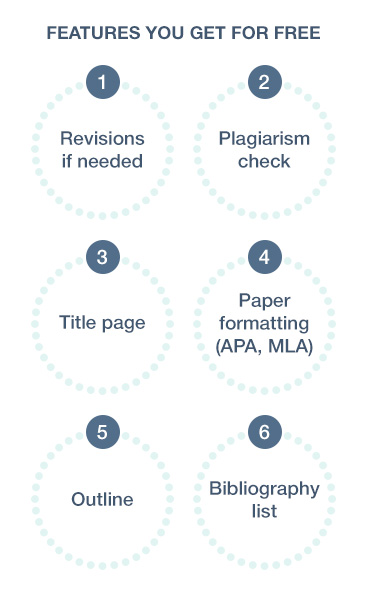“Shall I Compare Thee to a Summer’s Day” by William Shakespeare
A sensitive sonnet “Shall I Compare Thee to a Summer’s Day” by William Shakespeare and a mindful poem “The World is Too Much with Us” by William Wordsworth represent differently, but at the same time similar plots, making the audience plunge into the reality of their own emotions and feelings. Both authors demonstrate the existence of the most significant issues based on mindfulness of preciousness and gratefulness that refer to nature, human being and love.
Get a Free Price Quote
Nature will exist eternally, but human beauty and love are temporary. In the poem “Shall I Compare Thee to a Summer’s Day” William Shakespeare portrays the beauty of a beloved person comparing him/ her with nature’s existence and its eternity. The words “Shall I compare you to a summer’s day” (Shakespeare, 2014) show that the author draws a parallel between a man and nature, but it is understandable for him that the beloved person is more constant than a simple summer day. It seems that nature does not bring so much joy to the narrator, because winds are rough, and they disturb “the darling buds of May”. Shakespeare presents summer, but there are no bright colors in the plot. However, a hot sun enables us to feel its warmth causing an illusion that it is possible to touch it as well. Describing nature, the author uses a simile and personification at once saying, “And every fair from fair sometime declines,/ By chance, or nature’s changing course, untrimmed” (Shakespeare, 2014). In this case, nature resembles a living creature that has some power to destroy human beauty, and it is like a man that can show his strength. Additionally, the line “But the eternal summer shall not fade” (Shakespeare, 2014) contains a metaphor, which reveals some fear of the narrator that beauty can fade like a flower, and summer means youth that is not everlasting. “The eye of the heaven” symbolizes the sun, which shines brightly, and it can be very hot at times. Shakespeare also personifies death saying that it will not take away his most precious thing, because poetry can save beauty. In this case, poetry is a symbol of life that exists eternally. It is evident that the author represents the beauty of nature and a man experiencing the feeling of love for the person. Perhaps, he despises nature, because it destructs human beauty, but the tone of the poem is very gentle and sad at the same time. Moreover, the tone is connected with an old dialect that emphasizes a deep sense of the plot, and such rhymes as “short-hot” and “day-May” illustrate the fastness of life on the Earth.
Nature is an integral part of human beings. In the poem “The World is Too Much with Us” by William Wordsworth, the author presents nature as a person, but the existence of nature is more important for him than for Shakespeare. The main point is that he wants to attract the audience’s attention to the best moments of human lives because people do not appreciate even some ordinary things. If Shakespeare worships man’s beauty, Wordsworth admires the existence of nature describing it as a person. The words “Little we see in Nature that is ours” (Wordsworth, 2014) illustrate that a man is not mindful, because the surrounding is not essential for him. Moreover, Wordsworth feels great sympathy with nature and understands its boundless sufferings indicating that the winds can howl all the time. In such a way, the author tries to explain the main question of the poem based on people’s indifference to nature. Wordsworth adores nature. In the line “This Sea that bares her bosom to the moon” (Wordsworth, 2014) he uses a simile to express his inner feelings comparing nature with a woman. The sea is a metaphor that refers to the man, who adores his woman. There is also a simile, where the author compares the winds with flowers because both of them are very gentle. Moreover, Proteus and Triton symbolize power that God presented them to rule the world. Reading this poem it seems that people do not deserve nature, because the author uses the line “The world is too much with us” (Wordsworth, 2014) twice in order to show that human thoughts are too far from nature. Undoubtedly, nature is worth appreciating, because it is like God’s gift for mankind. It is possible to assume that nature symbolizes the eternal existence of the universe. Wordsworth uses sad and loving tone as Shakespeare does, but in this poem, the language is contemporary. The author also uses such rhymes as “powers-ours”, “boon-moon”, “hours-flowers”, “lea-sea” and others making the plot more precise and meaningful. Additionally, Wordsworth calls everyone to realize that it is necessary to take care of nature because it is a human shelter that saves numerous human lives. As for Shakespeare, he addresses his message to nature stating that nature destroys human beauty and life leading to death.
Summing up, William Shakespeare and William Wordsworth created unique literary masterpieces attracting readers’ attention from the very beginning to the end of the last lines. Undoubtedly, the audience shares the opinion of both authors feeling sympathy with nature and human existence. However, love for nature is more important than love to the person, because nature contains everything, even love. It is obvious that Shakespeare worships human beauty, but Wordsworth indicates in an invisible way that nature is like a living creature, which will exist forever. Nature makes every person more beautiful and mindful.









